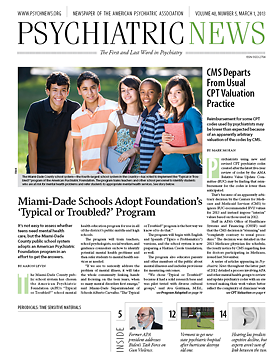Hearing loss, a common occurrence among seniors, may presage something more ominous—cognitive loss.
So suggests a study headed by Frank Lin, M.D., Ph.D., an assistant professor of otolaryngology, geriatric medicine, and epidemiology at Johns Hopkins University. The results of his study were published online January 21 in JAMA Internal Medicine.
The study cohort included 1,984 older individuals with an average age of 77. The study subjects lived in or near Pittsburgh, Pa., or Memphis, Tenn., and were cognitively healthy when the study began.
Each of the subjects was tested for his or her hearing ability at the start of the study and retested three, five, and six years later for thinking and memory abilities. The scientists then evaluated whether there was any association between hearing loss at the start of the study and subsequent decline in thinking and memory abilities, while taking possibly confounding factors—age, gender, race/ethnicity, study site, smoking status, high blood pressure, diabetes, and stroke—into consideration.
They found that there was in fact such an association. Out of the 1,984 subjects, 1,162 (59 percent) had had at least mild hearing loss at the start of the study. When those individuals were compared with the 822 subjects who had normal hearing at the start of the study, they were found to have a 30 percent to 40 percent accelerated rate of loss in thinking and memory abilities over the subsequent six-year period. Moreover, the individuals whose hearing loss was more severe experienced a decline in thinking and memory that was even greater than that experienced by individuals with less-severe hearing loss.
Yet if hearing loss presages cognitive loss, the question is why. One possibility, Lin and his colleagues suggested, is that hearing loss can lead to social isolation, and social isolation and loneliness in turn might lead to cognitive decline. Indeed, loneliness in older people has been linked in the past with cognitive decline and dementia.
Another possibility, Lin told Psychiatric News, is that cognitive decline leads to hearing loss. But that hypothesis is unlikely, he admitted, since when subjects were tested for hearing loss at the start of the study, all of them were cognitively normal, even those with hearing loss.
Still a third possibility, Lin said, is that some common nerve pathology contributed to both hearing loss and cognitive loss in those subjects who had both.
But “the big question,” Lin continued, “is, if you treat hearing loss, and you treat it well, can you possibly reduce the rate of cognitive decline and the risk of dementia over time? It is something that, at this point, we just don’t know.” He said that he and his colleagues are submitting a grant proposal to the National Institutes of Health (NIH) for a large clinical trial to answer this question. Half the subjects will get treatment; half will get watchful waiting. “We’ll be observing the subjects for rates of cognitive decline over time.”
The study was funded by NIH and the Triological Society/American College of Surgeons. ■
